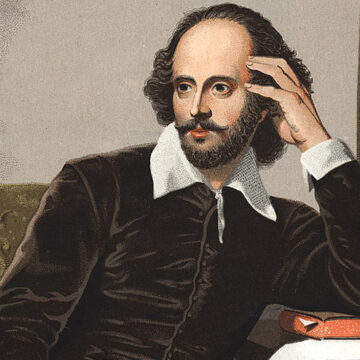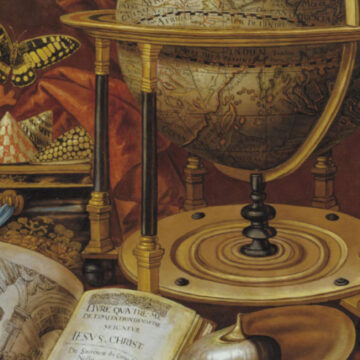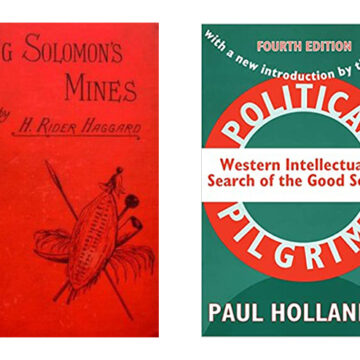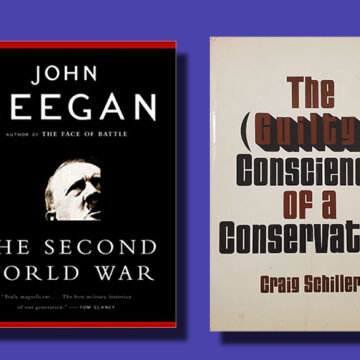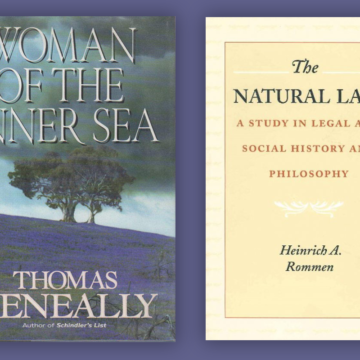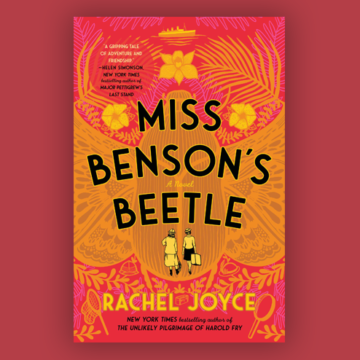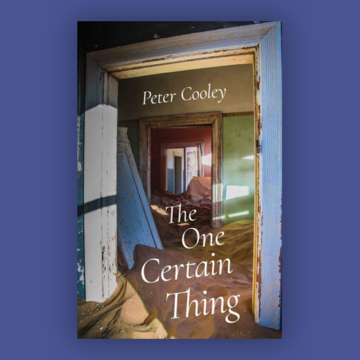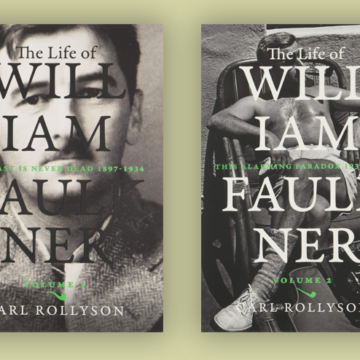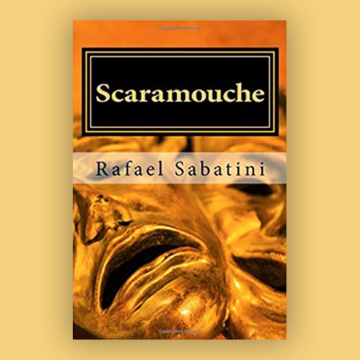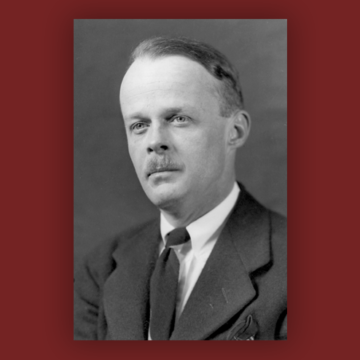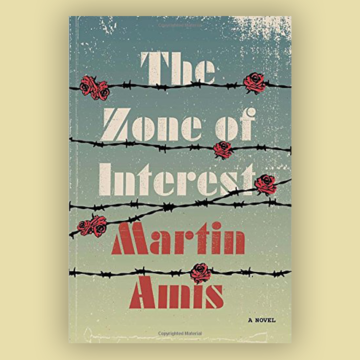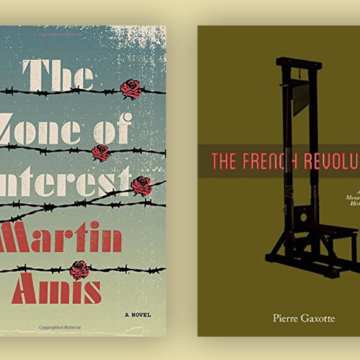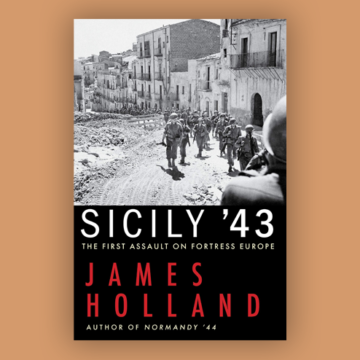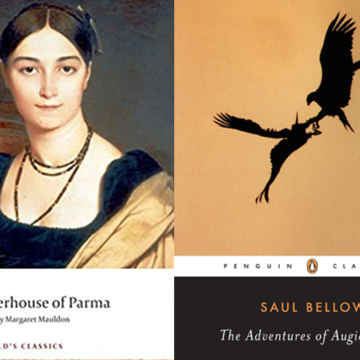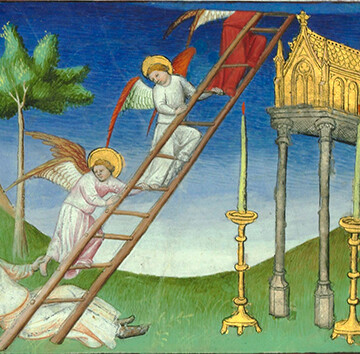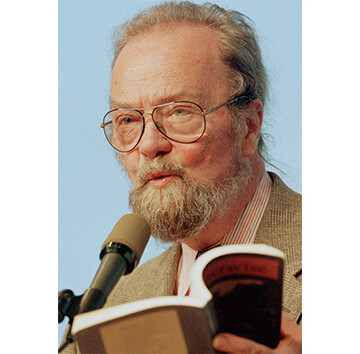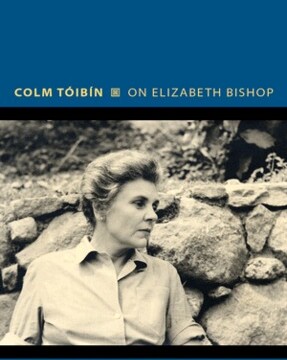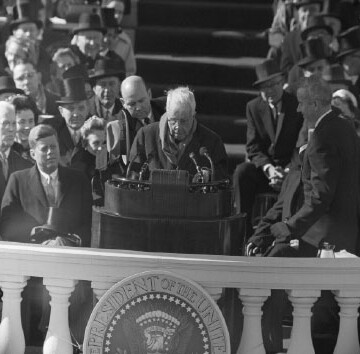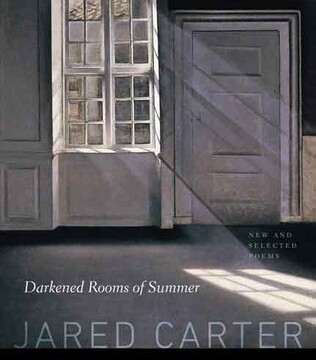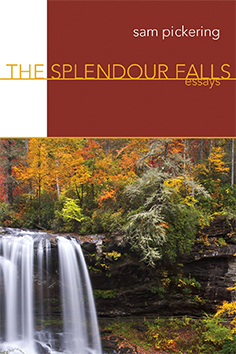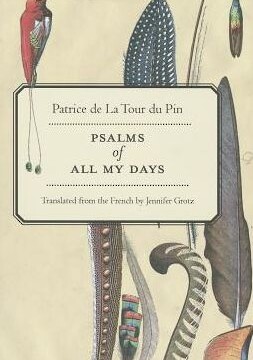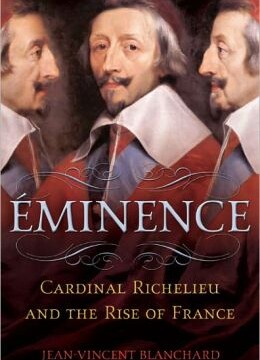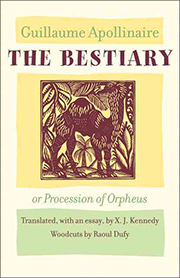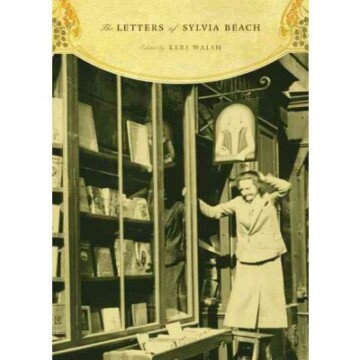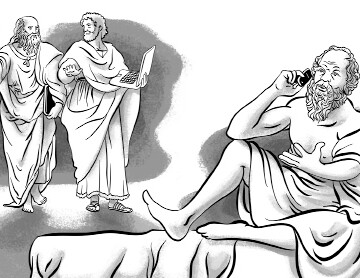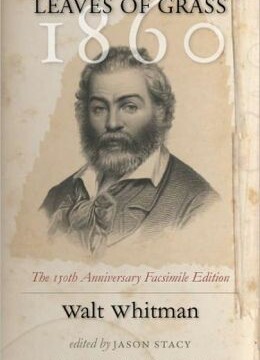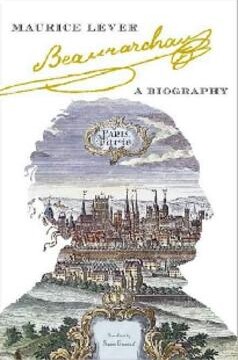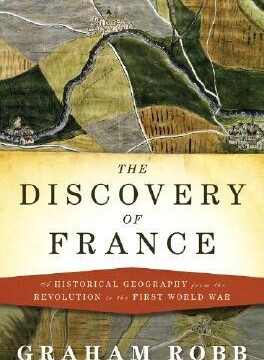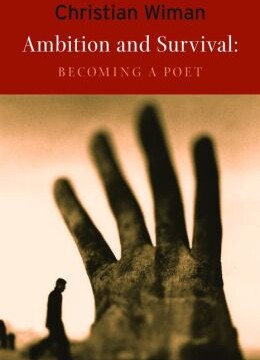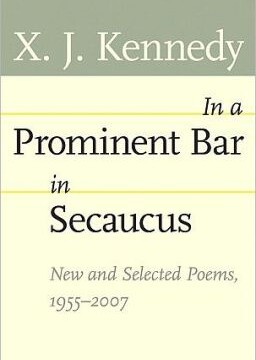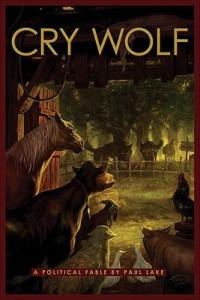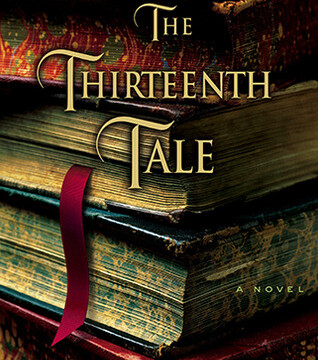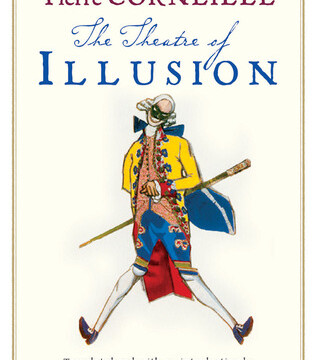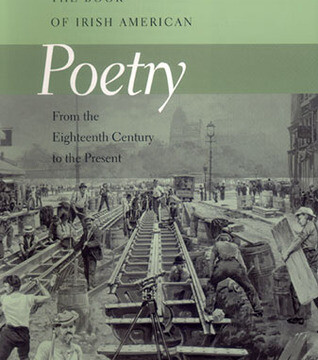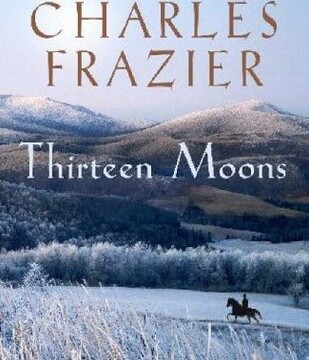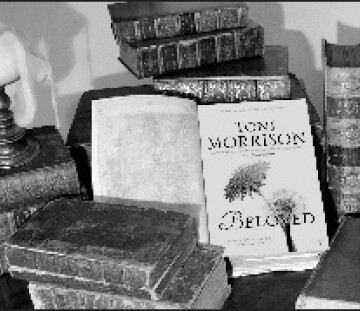Short reviews of Bartleby & Me by Gay Talese and Southern Poets and Poems, 1606 -1860: The Land They Loved by Clyde N. Wilson.
Author: Catharine Savage Brosman (Catharine Savage Brosman)
To Be Or Not to Be Western Civilization
Shakespeare and the Idea of Western Civilization, by R.V. Young, is an invaluable defense of Shakespeare against modern anti-Western critics.
What We Are Reading: May 2023
Short reviews of Pevsner's Architectural Glossary, by Nikolaus Pevsner, and Memoirs of Prince Alexy Haimatoff, by Thomas Jefferson Hogg.
Reading Your Way Around the World
In Around the World in 80 Books, David Damrosch makes a literary journey that loosely follows Jules Verne's classic geographical adventure of similar title.
What We Are Reading: May 2022
Reviews of King Solomon's Mines by H. Rider Haggard and Political Pilgrims: Western Intellectuals in Search of the Good Society by Paul Hollander.
What We Are Reading: 3/1/2022
This history of World War II should occupy an eminent position in any collection of studies on that conflict; it is a comprehensive treatment of its subject that stands head-and-shoulders above most of the stream of books issued since its publication in 1989. I reread it recently and have consulted it frequently. For many years, John Keegan...
What We Are Reading: November 2021
The plot of the Woman of the Inner Sea may strike one as interesting for a children’s book: An Australian woman leaves Sydney incognito for the interior and makes friends with a kangaroo and an emu. But Thomas Keneally’s novel is for adults and contains a complex structure, a rich cast of characters, and nuanced...
An Unlikely Beauty
Miss Benson’s Beetle by Rachel Joyce New York: Dial Press 368 pp., $18.00 Why read fiction? It’s life without consequences. Reading Miss Benson’s Beetle, a novel of manners that successfully mixes satire, farce, adventure, and mystery, reminds one of the value of imaginative literature. Most of the action takes place after World War II, while...
Books in Brief: The One Certain Thing
The One Certain Thing, by Peter Cooley (Carnegie Mellon University Press; 80 pp., $15.95). In “This Living Hand: A Visitation,” a poem from this outstanding testimony to a husband’s love for his wife and grief at her death, Peter Cooley writes about the crosses each wore. “Before they took your body to be burned/I scooped yours from...
Faulknerian Presentism
The Life of William Faulkner. Volume 1: The Past Is Never Dead, 1897–1934 512 pp., $34.95 The Life of William Faulkner. Volume 2: This Alarming Paradox, 1935–1962 656 pp., $34.95 by Carl Rollyson University of Virginia Press Readers might be excused for exclaiming, “What! Another Faulkner biography?” Yet one can make a case for a...
What We Are Reading: Scaramouche
A good historical novel—as Rafael Sabatini’s Scaramouche is—resembles a bridge game, where the hands and strategies are revealed only gradually. History itself unfolds irregularly, with disruptions, false starts, and surprises. Against the backdrop of complicated, vicious, and corrosive events in France in the late 1780s and early 1790s, Sabatini draws his characters from smallscale lives into the...
Remembering Allen Tate: Radical Conservative
A French woman who met the American poet Allen Tate (1899-1979) in the 1930s remarked, “Monsieur Tate is so conservative that he’s almost radical.” Etymologically, “radical” fits Tate well; his conservatism entailed returning, in the face of destructive social practices, to fundamental truths and the established customs embodying them, many immemorial. He espoused the primacy...
What the Editors Are Reading: The Zone of Interest
The novelist Martin Amis is the son of Kingsley Amis, whose Lucky Jim (1954) was a spectacular success. Noting the father’s “brilliance and ‘facile bravura,’” Atlantic critic Geoffrey Wheatcroft asserted that Martin “misunderstood his hereditary gifts when he turned from playful comedy to ‘the great issues of our time.’” Among his “great issues” is that of Nazi concentration camps,...
What the Editors Are Reading: April/May 2021
The novelist Martin Amis is the son of Kingsley Amis, whose Lucky Jim (1954) was a spectacular success. Noting the father’s “brilliance and ‘facile bravura,’” Atlantic critic Geoffrey Wheatcroft asserted that Martin “misunderstood his hereditary gifts when he turned from playful comedy to ‘the great issues of our time.’” Among his “great issues” is that...
Books in Brief: Sicily ’43
Sicily ’43: The First Assault on Fortress Europe, by James Holland (Atlantic Monthly Press; 599 pp., $30.00). By 1943, Hitler, given to paranoia and dreading loss of his North African outpost, had become obsessed with territory north of the Mediterranean out of concern that the Allies would gain a foothold in Sicily. With little confidence in...
What the Editors Are Reading
Stendhal was the pen name of Marie-Henri Beyle, who adopted it from the name of a German town he had seen with Napoleon’s army. His 1839 novel of the Napoleonic era, La Chartreuse de Parme (The Charterhouse of Parma), was welcomed by a favorable and important review by Honoré de Balzac, and André Gide, an astute critic, included...
What the Editors Are Reading
The Diary of a Country Priest (1936) by Georges Bernanos is as timely now as ever. It can be appreciated for its powerful Christian vision, its pertinence to today’s social illnesses, and its literary excellence, as shown in narrative technique, style, character portraits, and subtle plot development. I’ve taught it repeatedly. In a summer course...
What the Editors Are Reading
I’m enmeshed in reading all of Shakespeare, using the The New Oxford Shakespeare: Modern Critical Edition (Oxford University Press, 2016). Within 3,180 pages, it contains all the Bard’s writing in chronological order, from The Two Gentlemen of Verona to The Two Noble Kinsmen, and everything in between, including his sonnets. This edition has a splendid...
Unconscious Beauty
This handsome hardbound volume, an authoritative study in art history that can pass as a coffee-table book, is billed by its publisher as “the first-ever history of the representation of dreams in Western painting.” The author, Daniel Bergez, is himself a painter, and also a scholar, critic, and professor at the Lycée Henri-IV in Paris....
What Good Poetry Can Be
A long and distinguished literary career ended on June 23, 2018, with the death of New England poet Donald Hall. A versatile and prolific author, he served in 2006-07 as poet laureate of the United States. Like Wallace Stevens, Robert Frost, and Richard Wilbur, fellow poets who settled in the region (though very different from...
How the Historical Novel Has Changed!
Should one read Hervey Allen or Anne Rice? Why should the question be asked at all? Why might a discriminating reader today even think of picking up either Hervey Allen’s massive best-seller of 1933, Anthony Adverse, or The Feast of All Saints (1979) by Anne Rice, a hugely popular contemporary author? (Both are still available...
Sewanee, Deconstructed
“Make it new!” demanded Ezra Pound. Would he have liked the cover for the outrageous winter 2017 issue of the Sewanee Review, America’s oldest continuously published literary quarterly? It consists of a mustard-yellow ground on which, in addition to the title, in a new font, are scattered six rough parallelograms, blue, as if scissored from...
Truth in Poetry
Elizabeth Bishop (1911-79) is considered to be among the most important American poets of the 20th century. She was a U.S. Poet Laureate and won a Pulitzer Prize, a National Book Award, and the Neustadt International Prize. Her collection Questions of Travel (1965) may be the best known. Perhaps her literary reputation outpaces her true...
Poetry’s Place in America
When Henry Wadsworth Longfellow visited London in 1868, he was invited by Queen Victoria to an audience at Windsor Castle. She complimented him on his poetry, assuring him that all her servants read it. Though Oscar Wilde took this phrase to be a rebuke of Longfellow’s vanity, why should it not be sincere? The claim...
Everyman’s Poet
Jared Carter, who has retired from a career in publishing, is a Midwestern poet of stature. He won the Walt Whitman Award of the Academy of American Poets and the Poets’ Prize; he has had a Guggenheim fellowship and two fellowships from the National Endowment for the Arts. He is profiled in the Dictionary of...
Free Spirit of Literature
Sam Pickering (born 1941) recently retired from professing English—mostly, it would appear, creative writing. Oh! “Beware! Beware! . . . Weave a circle round him thrice / . . . / For he on honey-dew hath fed / and drunk the milk of paradise.” If Coleridge had not crafted his magical lines for a figure...
Light of Being
Lest readers misunderstand, it must be said at the outset that these poems, selected from Psaumes de tous mes temps (1974), by Patrice de La Tour du Pin (1911-75), are not translations, even rough ones, from the Psalms of the Bible. The poet did serve as a translator for the Catholic Church when use of...
The APA: Sanctioning the Sexual Abuse of Children
At its May 2013 meeting in San Francisco, the American Psychiatric Association released the fifth edition of the Diagnostic and Statistical Manual of Mental Disorders. Among changes from the previous edition is the renaming of what was formerly termed “gender identity disorder.” (The American Medical Association uses the term “gender disorder,” classifying it as a...
In Defence of Poesie
My title, borrowed from Sir Philip Sidney, is deliberately misleading; that is, it does not mean here what he intended when he used it for his posthumous work (1595), known in another edition as The Apologie for Poetrie. In the past, poetry needed no defense—if that means pleas to a hostile or indifferent audience. Sidney,...
A Cardinal in Full
In his Testament politique, Armand-Jean du Plessis, Cardinal Duc de Richelieu, wrote, “A capable prince represents a great treasure in a state. A skillful counsel . . . is no less a treasure.” Surely Richelieu had himself in mind, as well as his sovereign, Louis XIII (1601-43). He added, “But the acting of both in...
Medieval Modernism
Unlike certain 19th-century poets of difficult character or seemingly foredoomed, whom Paul Verlaine called maudits (accursed)—Rimbaud, Gérard de Nerval, Corbière, Verlaine himself—Guillaume Apollinaire (1880-1918) was a pleasant, cheerful fellow. He, too, suffered misfortune, including illegitimate birth and absence of a father, unrequited love, wounding in the Great War, and premature death during the influenza epidemic...
Secure of Private Rights
“For who can be secure of private right, If sovereign sway may be dissolved by might?” —John Dryden, Absalom and Achitophel Dryden’s question, posed more than 300 years ago, supposes a just distinction but also a connection between one kind of rights, which he calls “private,” and another, “sovereign sway,” or legitimate public order. The...
A Need for Stewardship
Sissinghurst, in the Kentish part of the Weald, is the estate that prose author and poet Vita Sackville-West bought in 1930 after it became clear she would not inherit the lease on Knole, her family property. (It went instead to an uncle.) Though Sackville-West is notorious for her liaisons with Virginia Woolf and Violet Trefusis...
View From the Left Bank
After the Great War, Sylvia Beach founded, with money from her mother, Shakespeare and Company, an English-language bookshop and lending library on the Left Bank in Paris. As the American expatriate wrote much later, “I have always loved books and their authors.” She was encouraged by another woman bookseller, Adrienne Monnier, well known to French...
The Uses of a Liberal Education
On September 1, 1939, an Englishman named Harry Hinsley, walking between two lines of Nazi soldiers, crossed slowly and nervously the bridge connecting Kehl in Germany with Strasbourg in France. He made it to the French side before the border was closed. He had been warned to leave. It was none too soon; German troops...
Not a Live Tribe
Alphabetical order is useful for miscellaneous collections of items such as indexes, directories, dictionaries and encyclopedias, address books, and musings and bits of lore (Voltaire’s Alphabet of Wit, for example). Elsewhere it serves a pedagogical purpose, as in children’s readers and old collections (medieval bestiaries, botanical compendia). John Ashbery’s latest volume, Planisphere: New Poems, contains...
Prometheus Unbound
This volume, belonging to the Iowa Whitman Series, is identified as “the 150th Anniversary Facsimile Edition” of Leaves of Grass, third edition (1860). Originally issued in 1855, at the author’s expense, the collection was revised and republished in 1856, 1860, 1867, 1871, 1881-82, and finally 1892. The versions varied greatly in length and contents, as...
The New Yorker Under Glass
The first issue of The New Yorker (February 21, 1925) showed on its cover a dandy in top hat, high collar, and morning suit gazing through his monocle at a butterfly. The drawing is reproduced yearly, and butterflies became a cover motif. Whatever tastes, affectations, or snobbery the artist, Rea Irvin, wanted to suggest, it...
A Gentleman’s Badges
“Truth is stranger than fiction.” This commonplace is abundantly illustrated by the life of Pierre-Augustin Caron de Beaumarchais (1732-99), the young Paris watchmaker who is most famous for his plays The Barber of Seville and The Marriage of Figaro. From the facts of his extraordinary career, more than one lively novel could be drawn, including...
How the Historical Novel Has Changed!
Should one read Hervey Allen or Anne Rice? Why should the question be asked at all? Why might a discriminating reader today even think of picking up either Hervey Allen’s massive best-seller of 1933, Anthony Adverse, or The Feast of All Saints (1979) by Anne Rice, a hugely popular contemporary author? (Both are still available...
The Puzzle of France
Robert Gildea, professor of modern history at Oxford, is the author of some half-dozen volumes dealing with France after 1800 or, in one case, Europe as a whole. Most are broad studies or learned surveys (the terms are not intended as pejorative), very detailed, usually concentrating on one or more aspects of the picture. One...
La Plus Belle France
“If I were God and had two sons, the eldest would have to be God after me, but I’d make the second King of France.” —Ascribed to Maximilian I, Holy Roman Emperor The subtitle of this handsome illustrated volume, “A Historical Geography From the Revolution to the First World War,” usefully indicates the book’s historical dimension,...
A Life in Literature
In May 2003, Christian Wiman was named the new editor of Poetry, the Chicago-based magazine that Harriet Monroe founded and made justly famous. This appointment came a year after Ruth Lilly made a massive gift to the magazine that brought its endowment to nearly $200 million and attracted enormous media attention. Wiman, born in 1966,...
Seeing Clear
X.J. Kennedy is admired for his great skill in treating contemporary topics in traditional forms and especially for his cultivation of light verse. The high quality, abundance, and breadth of his writing—poetry, children’s work, fiction, textbooks—and his long presence on the literary scene make him one of the most important American poets today, as is...
Give Us Your Coyotes
From Aesop on, through Ovid, Chaucer, La Fontaine, and Dryden, to George Orwell, the genre of the animal fable (whether in verse or prose) has been useful to moralists and critics of human behavior. Paul Lake’s satire belongs to this lineage. Identified as “A Political Fable,” it is, as the back cover asserts, a 21st-century...
Cool Britannia Gothic
Does the public get the books it wants? Publishers, in their own interest, make it their business to see to that, whether it is a question of chemistry text-books or novels. While recent sales of earlier textbooks can suggest what the market will be for new ones, when it comes to fiction, publishers must play...
Un Monstre étrange
To translate a play by Corneille (1606-84), one of the “big three” dramatists (along with Racine and Molière) of the classical period in France, is to challenge most trends of contemporary American taste, starting with the reigning, and deplorable, standards of behavior and language. Corneille’s plays are in rhymed alexandrine couplets; the diction is elevated...
The Greening of America
This handsome book, with its dust-jacket reproduction of Hughson Hawley’s Laying the Tracks at Broadway and 14th Street (ca. 1891), is unique in American anthology-making. While it has long been acknowledged that Irish American fiction and drama constitute what Charles Fanning called, in The Irish Voice in America, “a distinctive and complex literary heritage,” Irish...
An American Life
It is not impossible, merely difficult, for the author of a highly praised first novel to produce a second worthy of its predecessor. Perhaps paucity of imagination is responsible for the failure of many second novels; the writer emptied his quiver the first time or got lucky with a flash-in-the-pan and should not have tried...
O Literature, Thou Art Sick
The present condition of literature (as that term is ordinarily understood), at least in America, is obviously unhealthy. Its illness is the result not only of internal undermining, “the invisible worm” of Blake’s “The Sick Rose,” but of external conditions, the “howling storm” on which the worm (however implausibly) rode. External and internal decline, all...
